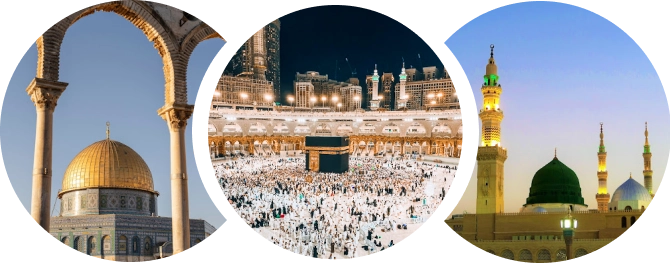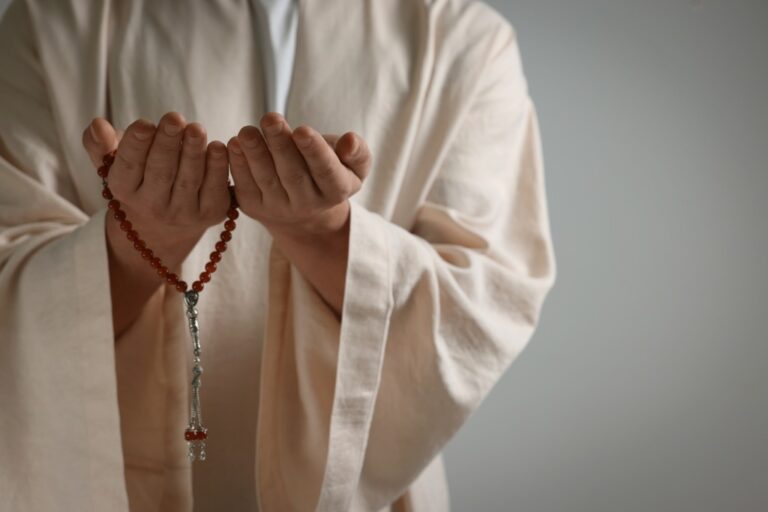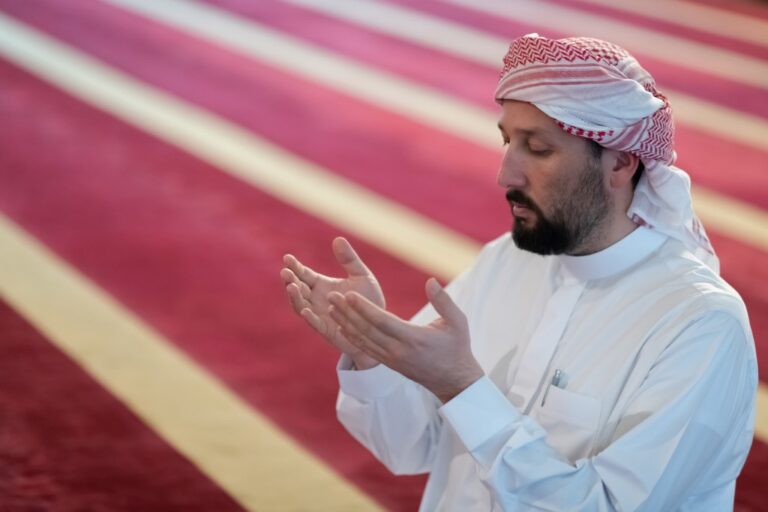La Ilaha Illa Anta Subhanaka Dua: Meaning, Benefits, When and How to Recite
Are you seeking a way to alleviate stress and achieve inner peace? “La Ilaha Illa Anta Subhanaka Dua,” also known as Ayat-e-Karima, is an influential Islamic prayer from the Holy Quran recited by Prophet Yunus during a time of great distress.
With this blog post, we’ll help you understand the profound meaning behind this Dua, teach you how to recite it correctly, and reveal its numerous benefits. Dive into this spiritual journey with us for an enlightened pathway toward tranquility and divine connection.
Understanding the Meaning of La Ilaha Illa Anta Subhanaka Dua in English


The Arabic prayer “La Ilaha Illa Anta Subhanaka” was first spoken by Prophet Yunus (A.S). When Allah SWT punished him and ordered a big fish (whale) to swallow him, he recited this Dua inside the fish. These words are even mentioned in the Holy Quran.
In English, “La Ilaha Illa Anta Subhanaka Inni Kuntu mina athalimeen” is translated as “There is no god ˹worthy of worship˺ except You. Glory be to You! I have certainly done wrong.” The phrase “La ilaha illa Anta” expresses faith in Allah SWT alone. This section of the Dua states that only Allah SWT should be worshiped.
In contrast, the words “Subhanaka” praise and glorify Allah SWT for His greatness and perfection. This refers to the most important aspect of seeking forgiveness: praising Allah SWT.
Prophet Yunus recited this Dua to seek forgiveness from Allah SWT for his error. It expressed his sorrow for what he had done wrong and begged Allah SWT’s forgiveness.
The prayer begs Allah SWT for mercy and expresses regret for any mistakes. The person saying it has complete faith in Allah SWT, because they know that only He can forgive them.
- For the most accurate Athan and Prayer times, please click here
The Arabic Text of La Ilaha Illa Anta Subhanaka Dua
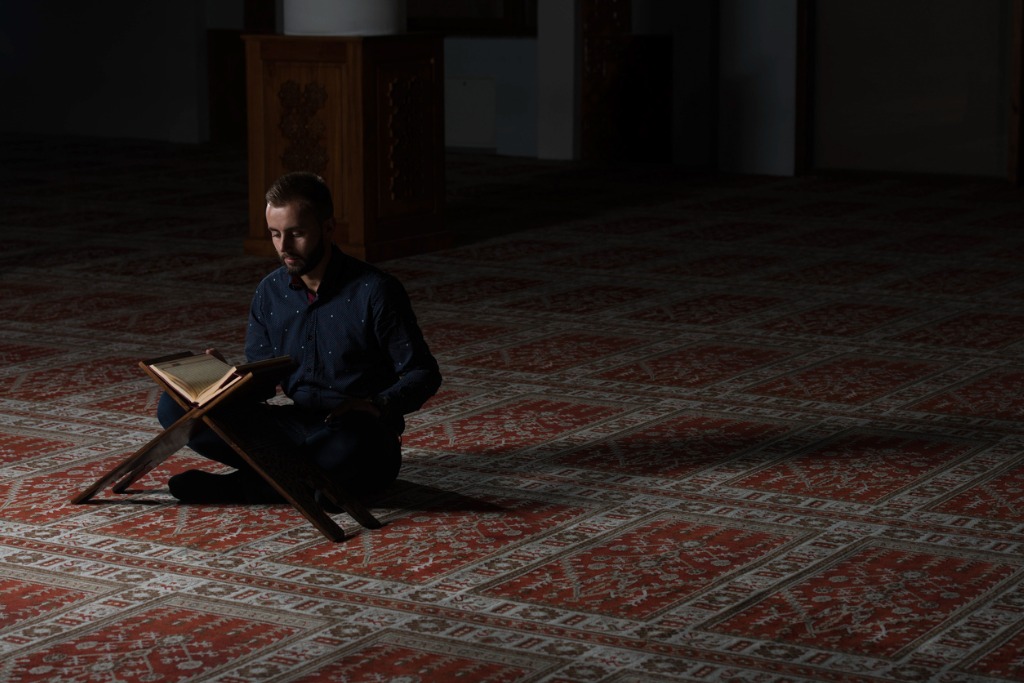

The Arabic text of this Dua came from the Quran. It is in Surah Anbiya Verse 87. Here, you find the holy words spoken by Prophet Yunus inside a fish’s belly. He said:
لَّآ إِلَـٰهَ إِلَّآ أَنتَ سُبْحَـٰنَكَ إِنِّى كُنتُ مِنَ ٱلظَّـٰلِمِينَ
“La Ilaha Illa Anta Subhanaka Inni Kuntu Mina athalimin”.
When and How to Recite This Dua


You can say this Dua at any time and in any place. Here are some tips to help you:
You should recite this Dua after every obligatory prayer because the chances of your Dua being accepted are higher at that time. You should also try to recite this Dua in Arabic.
The Messenger of Allah SWT (ﷺ) was asked: “At what time does the supplication find the greatest response?” He (ﷺ) replied, “A supplication made during the middle of the last part of the night and after the conclusion of the obligatory prayers.” Riyad as-Salihin 1500
- Download Muslim Sadiq app, and enjoy all top-notch features for everyday activities!
The Benefits of Reciting This Dua
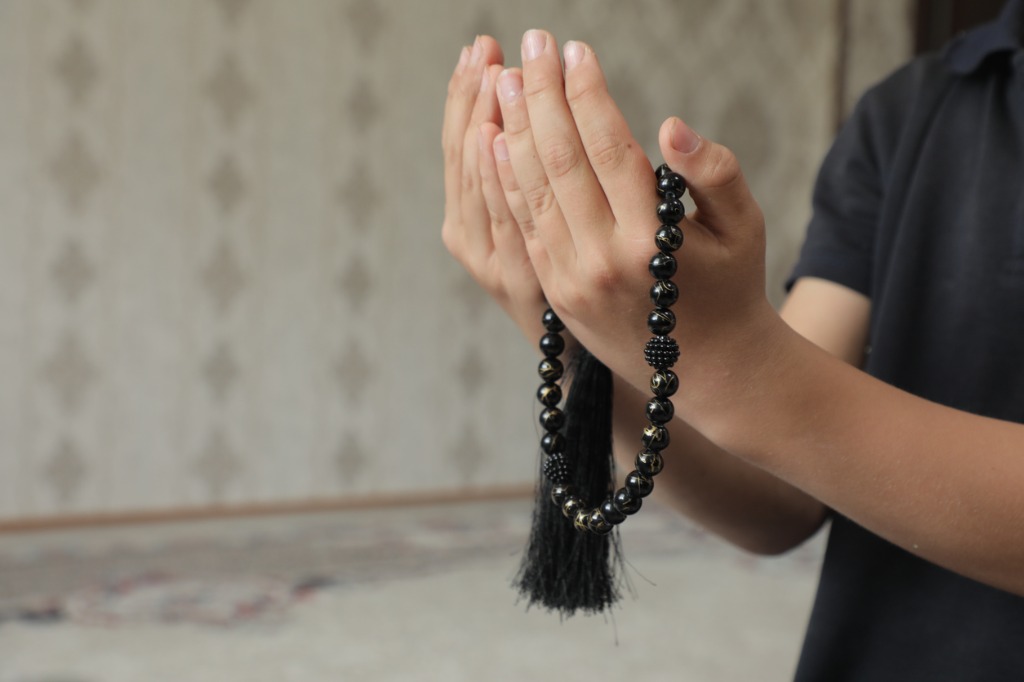

This Dua can help you in a variety of ways. To begin with, reciting this Dua is an act of seeking forgiveness for your sins. This strengthens your relationship with Allah SWT because this act is one of the most beloved to Him, as He says in the Quran:
“…Surely Allah loves those who always turn to Him in repentance and those who purify themselves.” (2:222)
Secondly, this Dua is a Sunnah of the Prophet Yunus A.S, as he sought forgiveness in these words, and Allah SWT mentioned these beautiful words in the Quran. This indicates that Allah SWT admired his method of seeking forgiveness and included it in his Book. So reciting it may result in more of His attention!
Thirdly, this prayer brings peace to your soul and body, because you are remembering Allah SWT while making this Dua, and the Quran says:
“Those who believe and whose hearts find comfort in the remembrance of Allah. Surely in the remembrance of Allah do hearts find comfort.” (13:28)
Lastly, Allah SWT showers his Blessings upon those who seek forgiveness, since Prophet Nuh said to his people when calling them towards Islam:
فَقُلْتُ ٱسْتَغْفِرُوا۟ رَبَّكُمْ إِنَّهُۥ كَانَ غَفَّارًۭا ١٠ يُرْسِلِ ٱلسَّمَآءَ عَلَيْكُم مِّدْرَارًۭا ١١ وَيُمْدِدْكُم بِأَمْوَٰلٍۢ وَبَنِينَ وَيَجْعَل لَّكُمْ جَنَّـٰتٍۢ وَيَجْعَل لَّكُمْ أَنْهَـٰرًۭا ١٢
Saying, ‘Seek your Lord’s Forgiveness, ˹for˺ He is truly Most Forgiving. He will shower you with abundant rain, supply you with wealth and children, and give you gardens as well as rivers. (71:10-12)
So, reciting this Dua not only benefits you on the day of judgment but will also improve your worldly life!
- Read Al Quran along with interpretation in the easiest way possible by clicking here
FAQs
What is the meaning of “La Ilaha Illa Anta Subhanaka” Dua?
“La Ilaha Illa Anta Subhanaka Dua” shows oneness of Allah SWT or Tawheed. It asks for Allah SWT’s mercy and forgiveness for our transgressions.
Can we say this Dua in times of trouble?
Yes, saying “La Ilaha Illa Anta Subhanaka” can provide guidance and protection. This is due to the spiritual blessings and strong connection with Allah SWT that it establishes.
What benefits do I get by saying “La Ilaha Illa Anta Subhanak”?
This powerful Dhikr has many benefits, including lowering anxiety and stress levels, resolving health, financial, and work-related issues, bringing Islamic knowledge within reach, and magnifying intentions toward glorified worship.
There is no god but You, Glory be to You. Supplication: meaning, benefits, when and how to recite it
Are you looking for a way to relieve stress and achieve inner peace? “There is no god but You, Glory be to You” supplication, also known as the Holy Verse, is a poignant Islamic prayer from the Holy Quran recited by the Prophet Yunus during a period of great distress. Through this post, we will help you understand the deep meaning behind this supplication, teach you how to recite it correctly, and reveal its many benefits. Immerse yourself with us on this spiritual journey for an enlightened path to tranquility and divine connection.Understand the meaning of There is no god but You Subhanaka Dua in English


- For the most accurate Azan and prayer times, please click Here
The Arabic text of “There is no god but You, Glory be to You,” is a supplication


When and how to recite this supplication


- Download the Sadiq Muslim App, and enjoy all the premium features for daily activities!
Benefits of reading this supplication
- Read the Qur’an with interpretation in the easiest way possible by clicking Here

